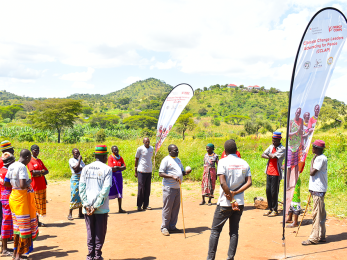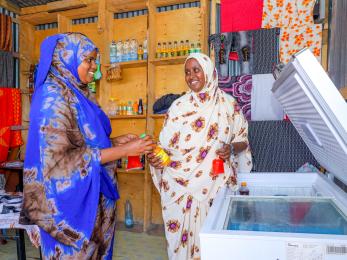Conflict, Livelihoods, and Resilience

Violent conflict between farmers and pastoralists over scarce natural resources in the Middle Belt region of Nigeria has trapped communities in a cycle of insecurity and underdevelopment. The extent to which communities can respond to and prevent conflict has a big impact on their ability to improve livelihoods in this resource-restricted environment.
Mercy Corps’ Community-Based Conflict Management and Cooperative Use of Resources (CONCUR) project has been operating in the region since 2012, seeking to reduce violent conflict between farmer and pastoralist communities. This study—one of three reports focused on the links between conflict and development —sought to learn more about the specific effects of conflict on communities’ resilience and how to reduce violence while promoting development.
Key findings and recommendations
- Existing coping strategies harm long-term growth and may fuel conflict: In an effort to avoid conflict, pastoralists restrict their movement patterns, which can alter their ability to earn a living and may increase land conflict.
- Conflict erodes future resilience: Conflict harms a household’s or community’s ability to support itself by destroying assets, vehicles, and even social bonds. This reduces both their livelihood capacities and resilience for future shocks. Findings confirmed that security is the top priority of communities in the Middle Best and requires urgent action.
- Short-term, reactive dispute mechanisms ignore roots of conflict: When a community responds to a violent event with short-term, quick responses, the root causes of conflict continue to be ignored. Traditional mechanisms are largely designed to address issues within homogenous communities, and cross-community efforts to build peace are scarce.
- Conflict management programs should be accompanied by livelihoods and land-use planning. The need for comprehensive peacebuilding programs is overwhelming and can be supported by government efforts. Activities should also incorporate livelihoods and land-use planning to counter potential additional conflict.

